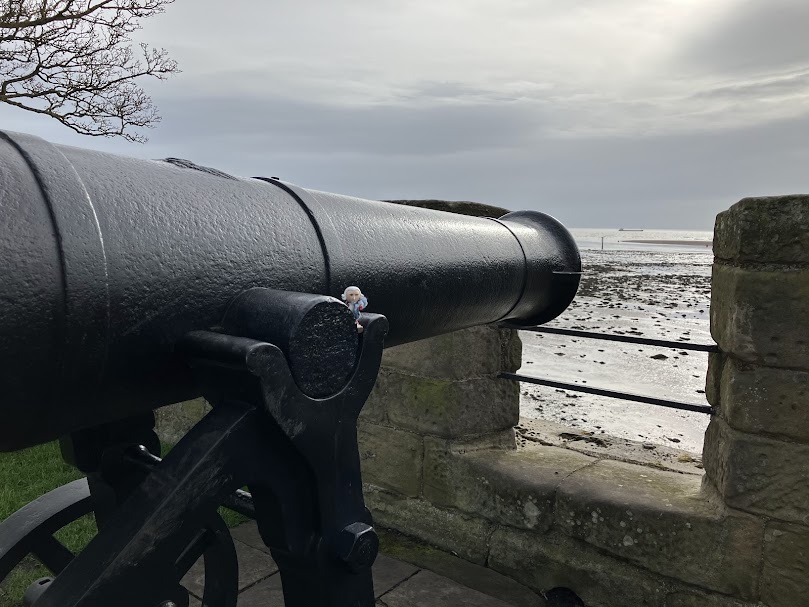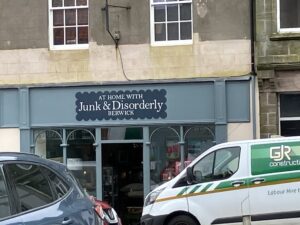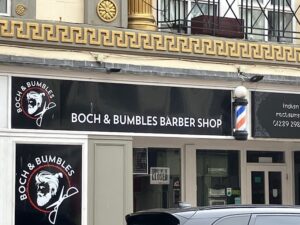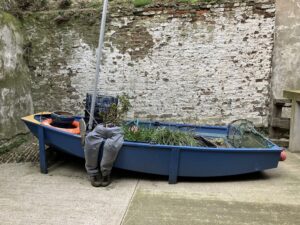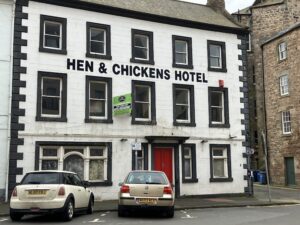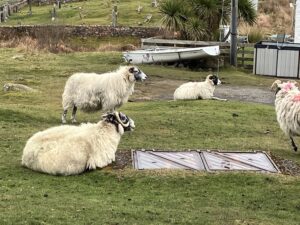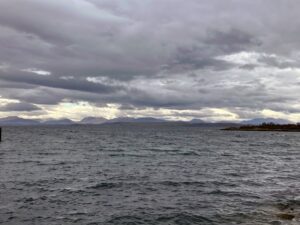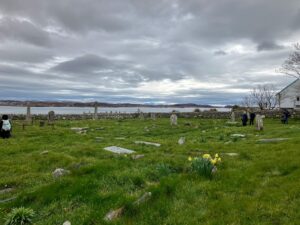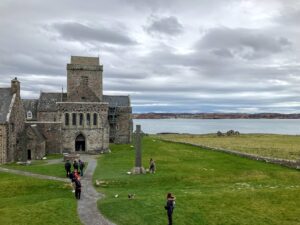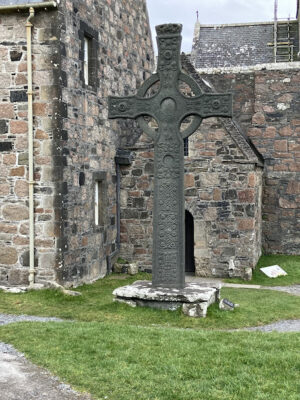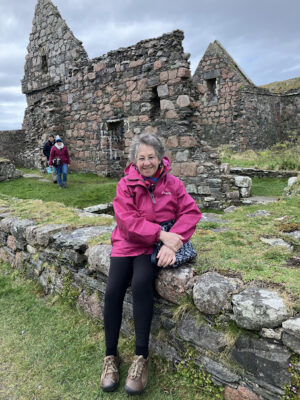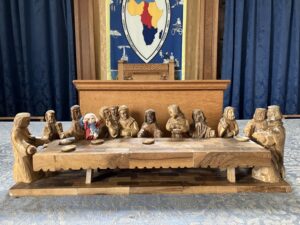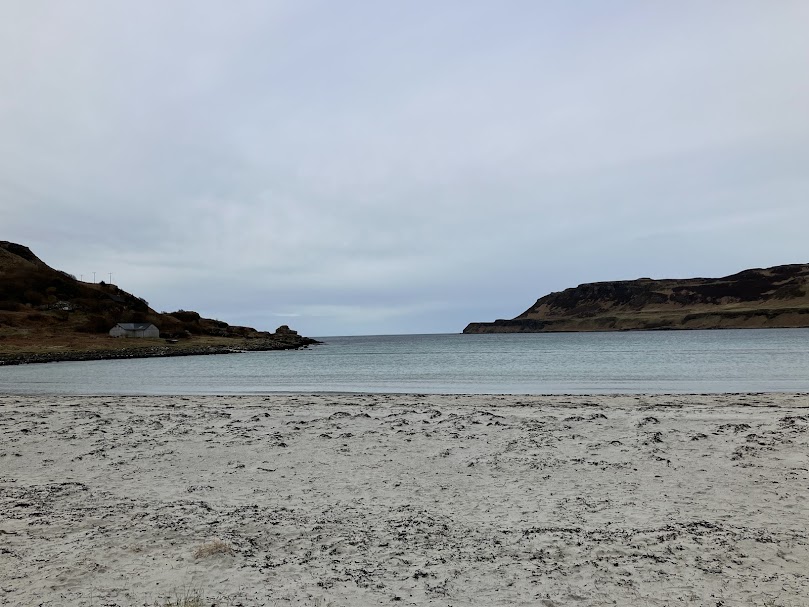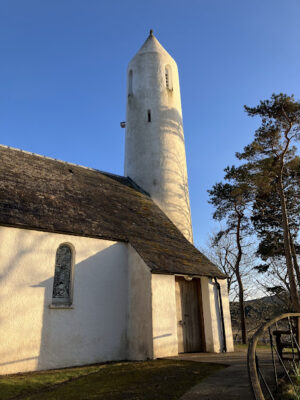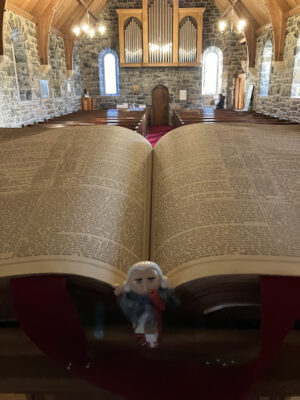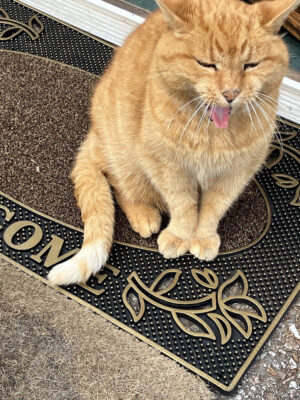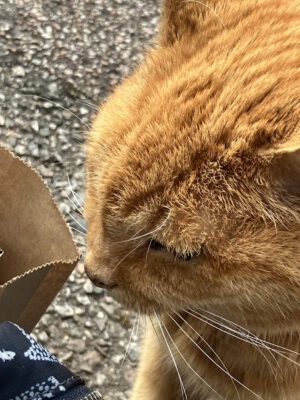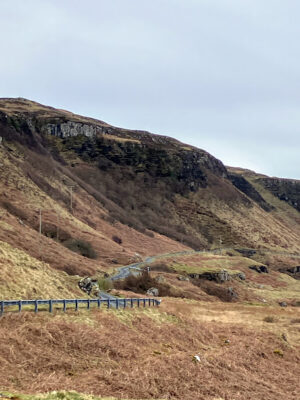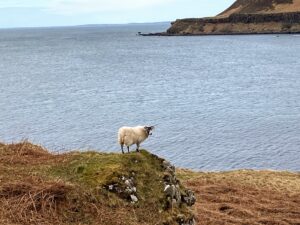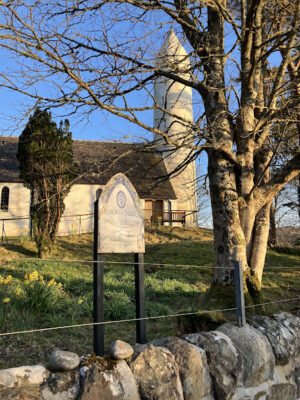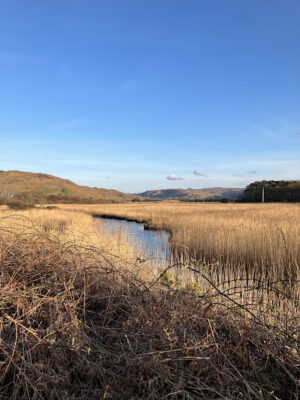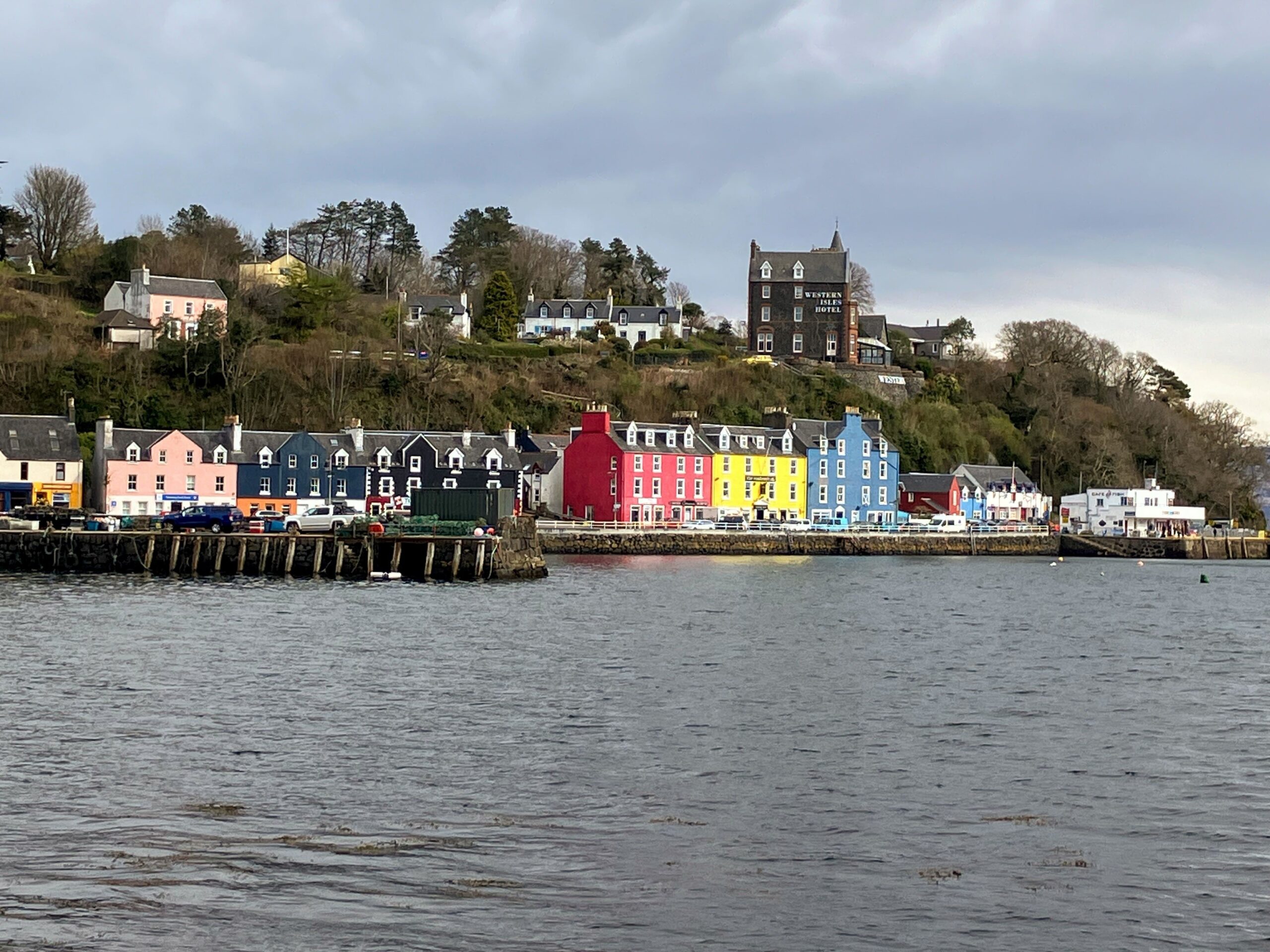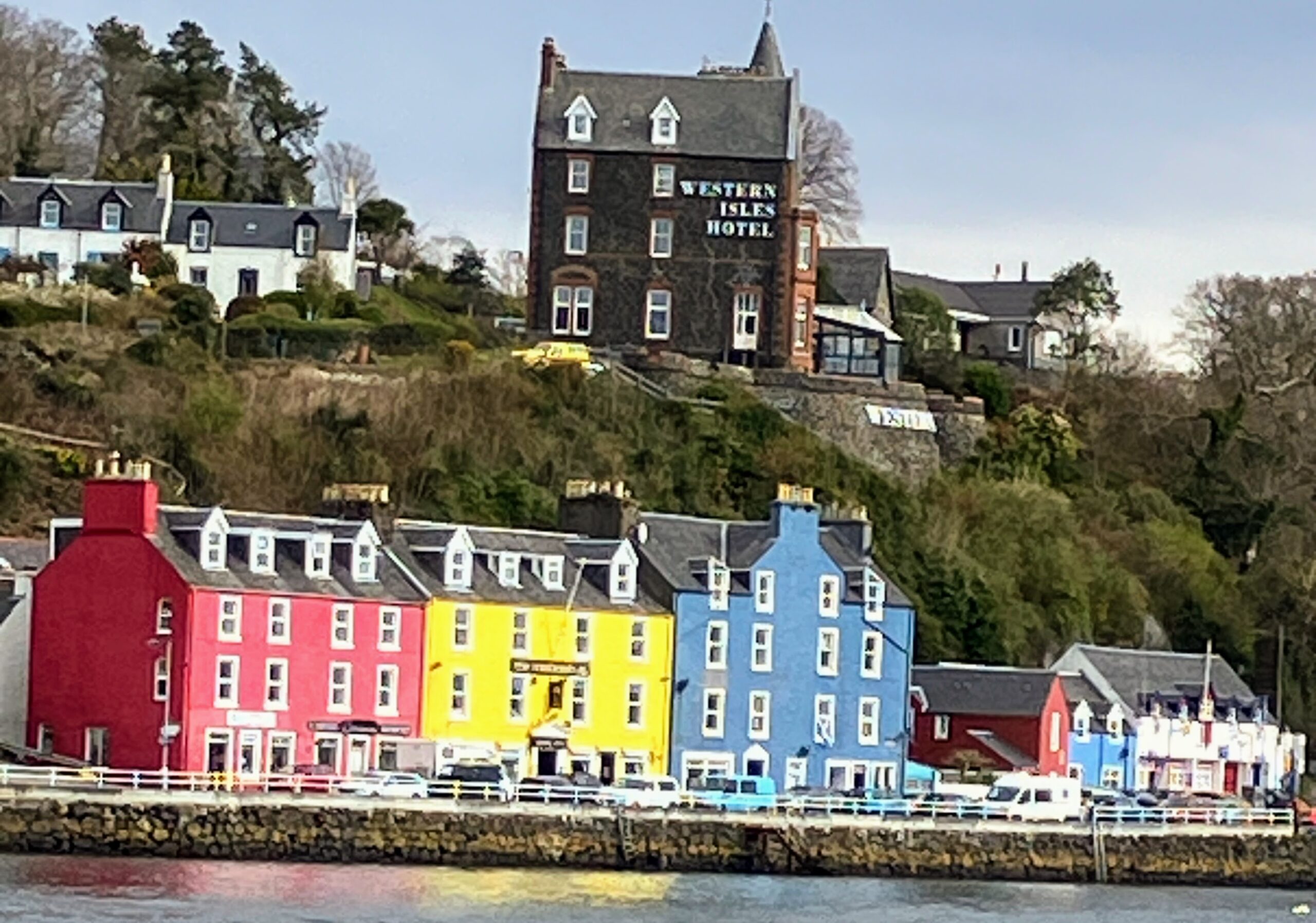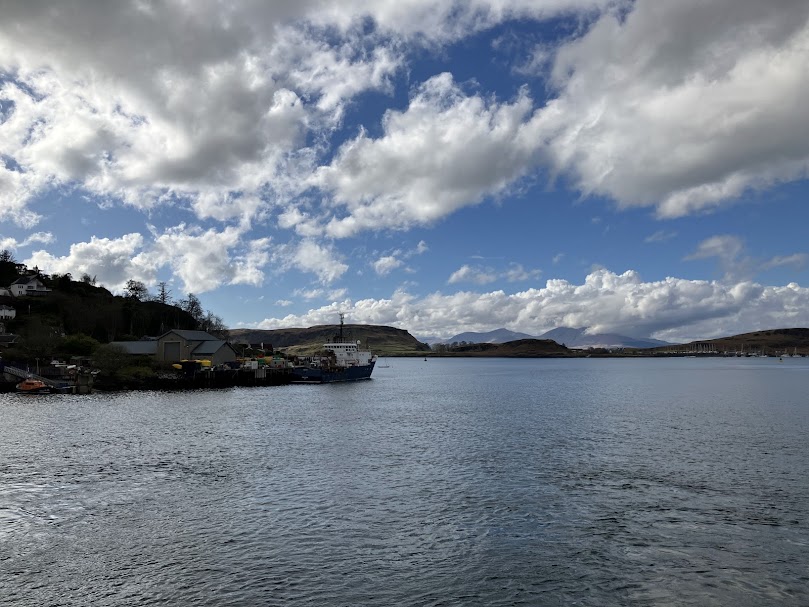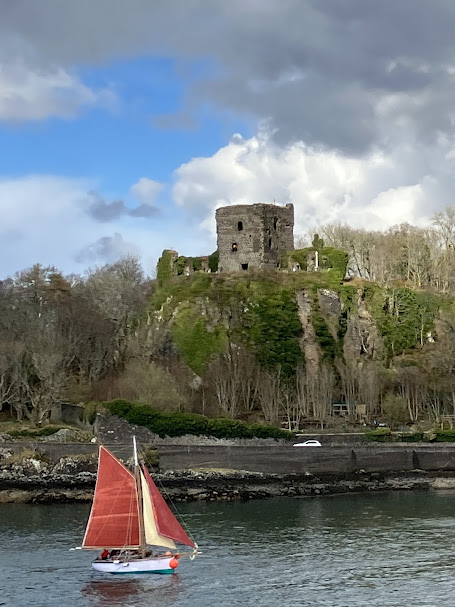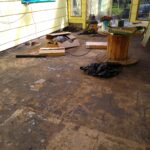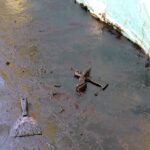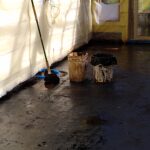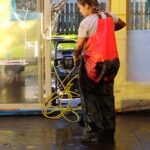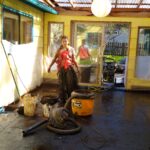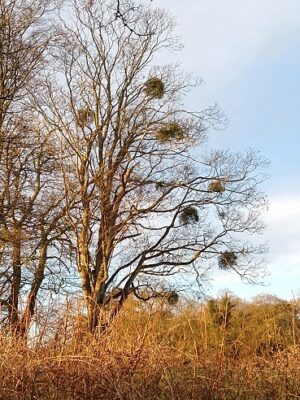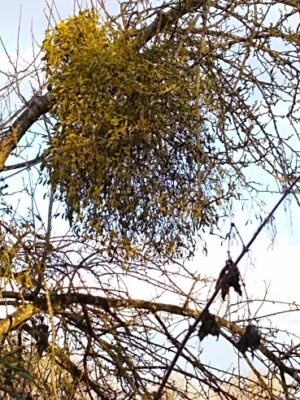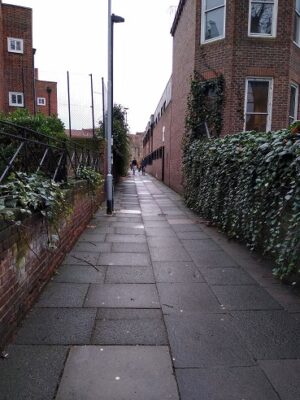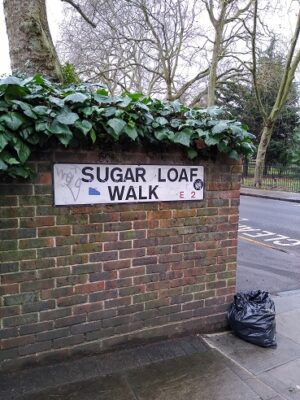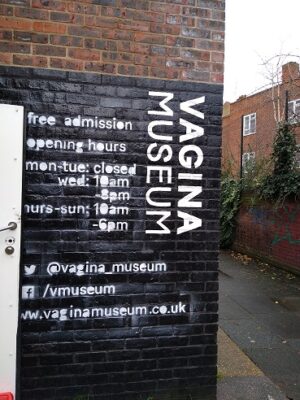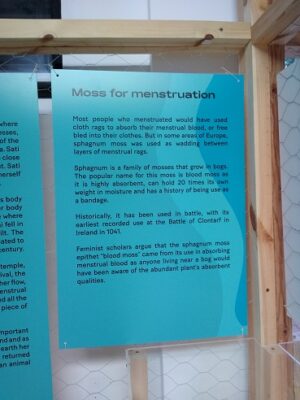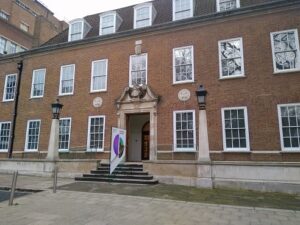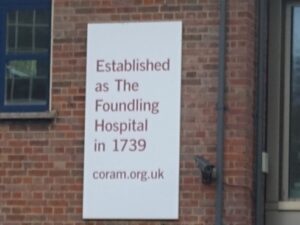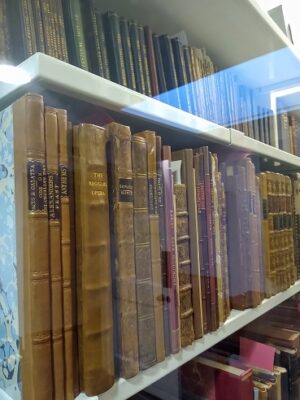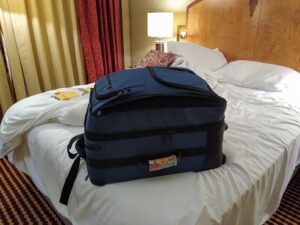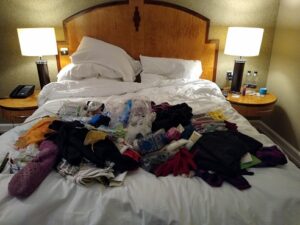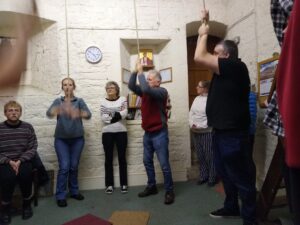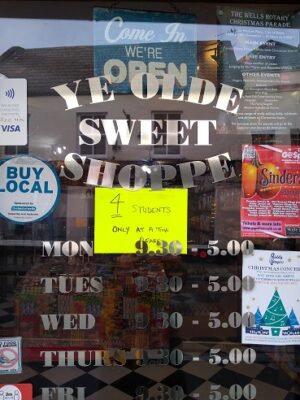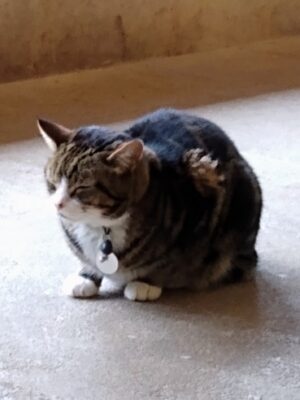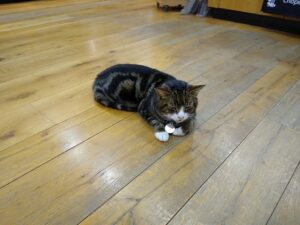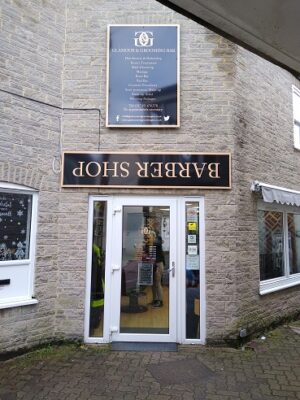Here is Duart Castle. Sue had to get a private escort (practically) to get a view of the castle that wasn’t propped up with scaffolding. The castle is situated on a little promontory of land south of Craignure and overlooking the Firth of Lorne.
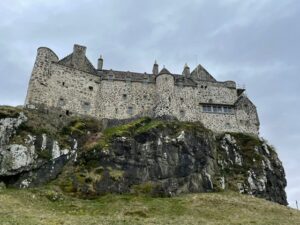
Duart Castle, Mull. Photograph: Sue Cooke
I was excited about this castle because it figures in a 1938 Powell-Pressburger movie I have seen half a dozen times called “I Know Where I’m Going.” It stars a young Wendy Hiller and Roger Livesay and was filmed on Mull and Colonsay, another Hebrides island. In the film, the main character takes the train from Glasgow to Oban only she has her own compartment on the train and isn’t squished into a short train full of Easter holiday-makers.
Inside it was cold. All castles are cold and damp but I was especially cold because unbeknownst to me, I was getting sick. But I’ll get to that.
The first stop with Wendy and Sue is always the café, either for lunch or for tea and cake. We pushed our trays along, cafeteria style.
“Do you have anything gluten free?”
“No-I’m-terribly-sorry-we-don’t.” He looked straight ahead of himself.
“Do you have soup?” Every Scottish café has soup. It was definitely a hot soup day.
“No-I’m-terribly-sorry-we-don’t.”
He didn’t look terribly sorry to me. He looked bored.
We got sandwiches and I just ate the middle part with some weak tea. Egg mayonnaise. Yum. Doesn’t that sound good? Egg mayonnaise, tuna mayonnaise, shrimp mayonnaise, chicken mayonnaise. The reason they call them that is because there is more mayonnaise than egg, tuna, shrimp or chicken. And then there is butter on the bread as if you need any more fat.
I’m a little whiny just thinking about there not being any hot soup because it was so cold.
But with the exception of the bored café server, everyone was good to us. The ticket taker offered to let warm our hands from his heater before we entered the castle. More surprising than that, the chief of clan Maclean who was wandering around his ancestral home in his pajamas, offered the same thing.
Laclan Maclean was not really wandering around in his pajamas. But he was dressed in baggy pants, a couple of sweatshirts and slippers, loitering in an upstairs gallery, talking to tourists. In a society where everything is “lovely,” he really was lovely. We chatted with him and he asked about us. He apologized for the temperature of the castle and offered to let me warm up by his electric heater.
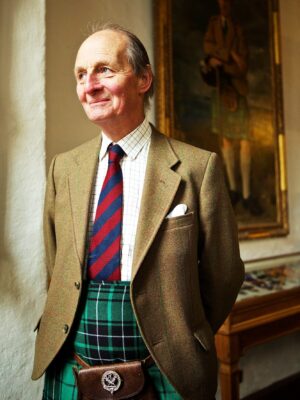
Laclan Maclean, chief of Clan Maclean
The young man in the gift shop was a student, home for the Easter hols and the complete opposite from the bored young man in the cafe. He lived just down the road and had grown up on Mull.
“You don’t sound Scottish,” I said.
“I guess not,” he said. “I hear that a lot. My mother is English and my father is Portuguese and I went back and forth between both countries when I was growing up.”
I fingered the men’s ties. The young man explained to me the difference between ancient and modern ties and the two slightly different designs for whether you were hunting or having dinner. The “ancient ties” were thus called because the traditional dyes produced less vibrant colors than the modern ones. I wanted to get one for Andrew.
“I don’t know how to buy a tie,” I said to Wendy.
“I think you just take it up to the till and pay for it,” Wendy said.
You may have to know Wendy to appreciate how very funny that remark sounded.
When we left Duart Castle, I was feeling what Wendy and Sue would call “poorly.” I was grumpy when Sue insisted on going to Moy castle, which on the map, looked like it was just down the road. It was hardly a road. More like 20 miles of bike trail. It was raining and have I mentioned it was cold? When we finally got as close as we could in the car, I stayed put while Wendy and Sue tromped the half mile through god-knows-what to see Moy castle. It’s my big regret of the trip that I did not drag my phlegmy nose, sore throat and shuddering lungs and achy body down that soggy path and see Moy castle if only because it figures more prominently in “I Know Where I’m Going” than even Duart.
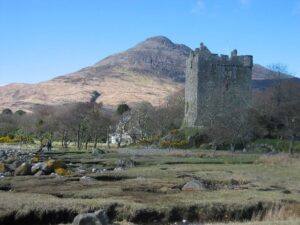
Moy Castle
I spent the next two days in bed, feeling sorry for myself and Face-timing with Andrew. Sue and Wendy had wild adventures without me but they brought me lemons and a remedy called Night Nurse from the chemist. In the evening, we played Happy Families and Snakes and Ladders, often mentioned in books and shows, and I wanted the experience. The closest thing we in America have to Happy Families is probably the card game, Authors. Snakes and Ladders is what we call Chutes and Ladders, only in England, you slide down a snake instead of a slide. The snake has something to do with the Victorians wanting to teach morality in their peculiarly surreptitious way.
Saturday morning was our departure day. On the kitchen table lay an envelope addressed to Craignure Police, evidence that Sue had not let go of our early introduction to Mull and was following through on Tick Billy. We packed up, cleaned up and left for Craignure where we were to leave the car with a full tank of gas. The gas pump had a bag over it. We had ¾ of a tank of gas and the memory of Tick Billy’s threatening behavior.
Wendy pulled into the police station and Sue got out. She was inside for a long time.
“What do you think she’s doing? Telling him the whole story?” I asked.
“I think she probably is,” said Wendy.
When Sue got back in the car, she said there was nothing official the police could do but they were going to make a report.
We left the car and started pulling our cases toward the ferry where we learned that all ferries were cancelled due to a storm. Once again we were with our cases beside the road in Craignure in the cold and damp. We went in the tourist office to see about accommodations for the night. We told the story of Tick Billy to a new set of staff and were gratified by their outrage that such a thing should happen on Mull.
Back outside, a police car pulled up to the ferry dock and Sue went out to speak to her new best friend, a young policeman named Kevin.
“I think Sue has made a friend,” I observed to Wendy.
“Can be a useful thing to have,” Wendy said.
It was. We got a ride in the police car to the posh Isle of Mull Inn and Spa a mile down the road. Once there, Kevin had to open the doors for us to get out because of course, once you’re inside a police car, you have no control over your life.
As we were waving goodbye, Sue said that Kevin was going to “have a word” with Tick Billy to make sure there was no difficulty with the ¾ full tank of gas; also to let him know that a complaint had been had been made about his unprofessional, not to say unkind behavior. Kevin told Sue he’d have been livid if anyone had left his grandmother standing by the side of the road with her case like we had been. We grinned at each other. None of us were grandmothers but age does have its uses.
At the Isle of Mull Inn and Spa, we got a sympathetic and outraged reception, not because the ferry was cancelled—they were used to that—but because Sue blurted out the Tick Billy story again. The hostess sat us down in the lounge overlooking the Sound of Mull and brought us complimentary tea and biscuits while our posh rooms were being prepared.
As we sat fussing over our bookings for that night in Glasgow, Wendy announced that Auntie Christine was paying for all this, the posh rooms, the meals, the works. Auntie Christine who died recently, had left Wendy a nice little pile of money. Wendy generously decided ours was a worthy reason to share the wealth.
My room was lovely and comfortable. I talked to Andrew and told him I had been listening over and over to Willie Nelson sing a song called “You Were Always on My Mind,” a song that in no way fit our relationship except for the recurring phrase that you were always on my mind.
“You’re listening to Willie Nelson?” Andrew asked incredulously. “You? Miss Opera? Miss Classical Vocal?”
“He was the most expressive,” I said defensively. “He makes me cry and right now I want to cry.”
I can’t hear that song now without thinking of the Isle of Mull Inn and Spa and three grandmothers drooped over their cases by the side of the road. And Andrew, of course.
We got the first and only ferry off the island the next morning. The storm made the crossing, well, perilous is too strong a word but it was a wee bit scary. It wasn’t too bad sitting in the middle and not looking to the side. When I looked out a side window, first the sky disappeared, and then the sea as the boat rocked up and down.
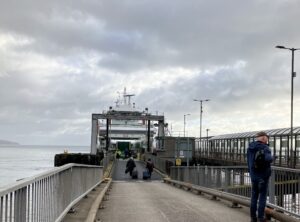
last ferry to Oban
All at once the boat lurched and white water fully eclipsed the view ahead, splashing all over the deck. I took a deep breath, grinned at Wendy and said, “It seems to be calming down.”
Sue, not amused, was white from motion sickness when we finally dragged our cases ashore at Oban. We found some tea (always, always) and while I’m on The Always, when you order tea, it comes in a crockery pot with cups and saucers and a wee pitcher of milk. Always. None of this paper-cups-to-go, although I guess if you’re a Philistine, you can have a paper cup to go. That’s not how Wendy and Sue roll.
We pulled into Glasgow after four hours on the uncomfortable train, enlivened by one delightful, enduring image: a lamb running down the edge of a field, his tiny legs pumping away like he had only just discovered them, running for the pure joy of movement. One little being with its own little mind and its own little experience of the world. So small and so precious.
At Queen Street station, the cousins saw me off on the train to Berwick-Upon-Tweed while they went on to their hotel. I decided that since I would have to lose one booking due to the ferries being cancelled, I’d lose the Glasgow hotel rather than the Airbnb in Berwick. It’s always hard to say goodbye to Sue and Wendy partly because I don’t see them very often and partly because when they aren’t around, I have to start thinking for myself.
I changed trains at Waverly and settled into a window seat. The drinks cart arrived immediately.
“A Scotch, please.”
“Scotch? What is this Scotch? I don’t know this Scotch.” It sounded like a Ghanian accent.
“Oh, a whisky,” I said. “If someone says Scotch, they mean whisky.” I made a note to not say Scotch while in Scotland. It seems to go without saying that you want Scotch, not Kentucky Bourbon.
Choosing the Berwick Airbnb over the Glasgow hotel was serendipitous. The Castle Vale Hotel is in a lovely old house, full of Catholic art and statuary, stuffed with DVDs and books—wonderful books, old, new, literary, Penguins, history, fiction, classics. My hosts, Margaret and Justin were the parents of ten children and thirty-nine grandchildren. My room was spacious and comfortable. Breakfast (all on bone china) included homemade bread and three kinds of homemade preserves: raspberry jam, marmalade and winter apple butter.
But the first order of business was to make a hot toddy with the last of my lemons and the High Commissioner whisky from the train and to crawl into bed at 8:00 and talk to Andrew and his daughter Lorna with whom he was having lunch, it being noon in Seattle.
Between the hot toddy and the Night Nurse, which I was still taking, I slept like someone with too many chemicals inside her.
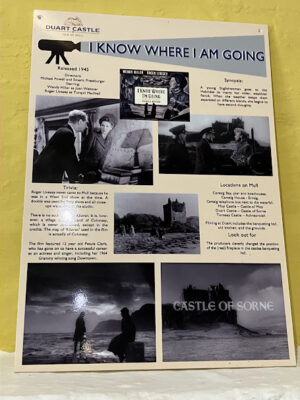
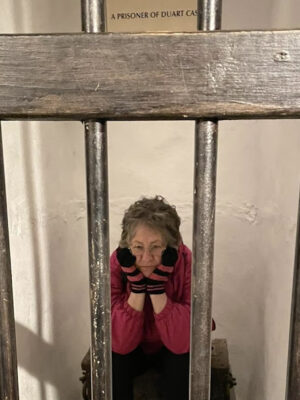
in dungeon of Duart Castle
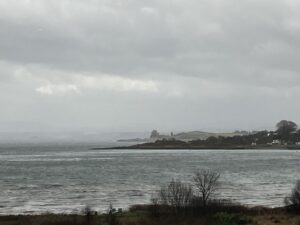
Duart Castle from the Isle of Mull Inn and Spa
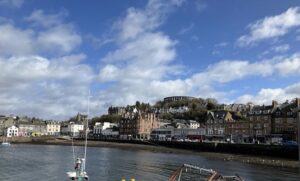
Oban
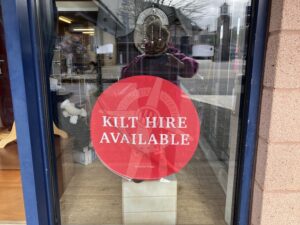
shop window in Oban
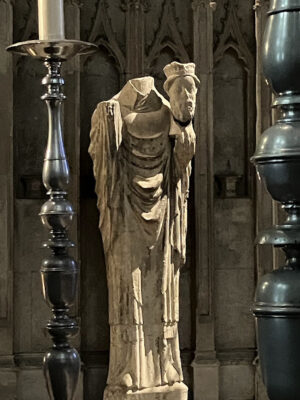


 RSS Feed
RSS Feed







